
Business Integrity Country Agenda (BICA): Conceptual Framework for a BICA Assessment
Publication Year: 2016 / Sources: Transparency InternationalThis document outlines the conceptual framework for conducting BICA assessments, providing a clear overview of the objectives and underlying principles for conducting such assessments. This overview document is complemented by the following two supplements, which provide more in-depth information on the assessment process as well as the indicator-based assessment framework.
Download: English | Khmer
National Integrity System Assessment ALBANIA 2016
Publication Year: 2016 / Sources: Transparency InternationalThis National Integrity System (NIS) assessment analyses whether Albania’s state architecture is designed to operate with and promote integrity, and whether it does so in practice. It offers a comprehensive diagnosis of the capacities, internal governance and the effectiveness of 15 key institutions and sectors, or ‘pillars’. The NIS also examines the broader political, social and economic context in which these pillars operate. In offering this diagnosis, the assessment seeks to identify priorities for an anti-corruption reform agenda.
Download: English | Khmer
National Population Policy 2016-2030
Publication Year: 2016 / Sources: Royal Government of Cambodia_Translated by UNFPAThe overall strategic objective of the policy is to contribute to steady improvements in the quality of life of the people of Cambodia and poverty alleviation with an emphasis on inclusive development which can be achieved through concerted efforts in ensuring sustainable and equitable economic growth, social development, and environmental protection within the national and global development framework.
Download: English | Khmer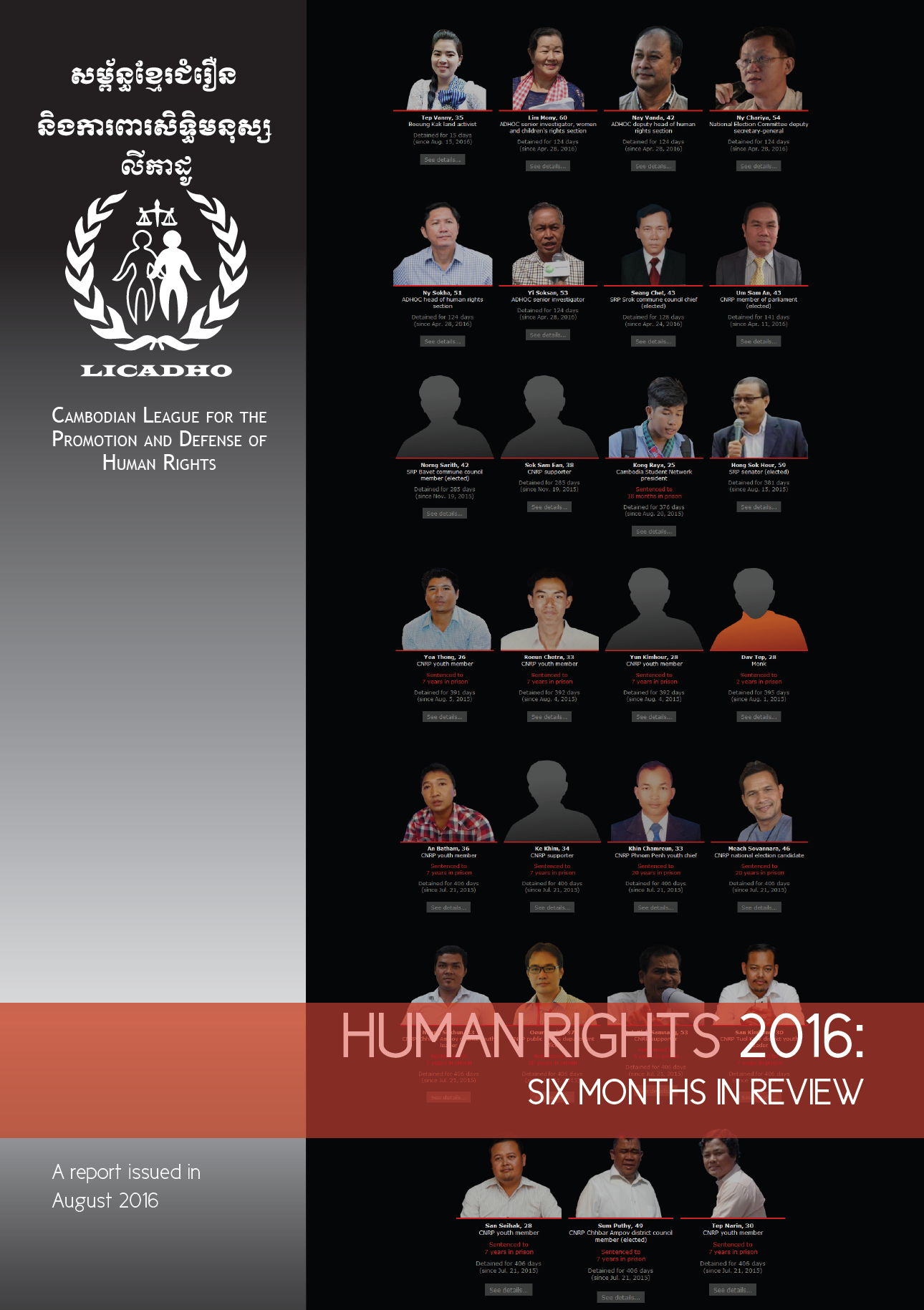
Human Rights 2016: Six Months in Review
Publication Year: August 2016 / Sources: LICADHOThis is the Human Rights Report in 2016 within first six months monitored by LICADHO.
Download: English | Khmer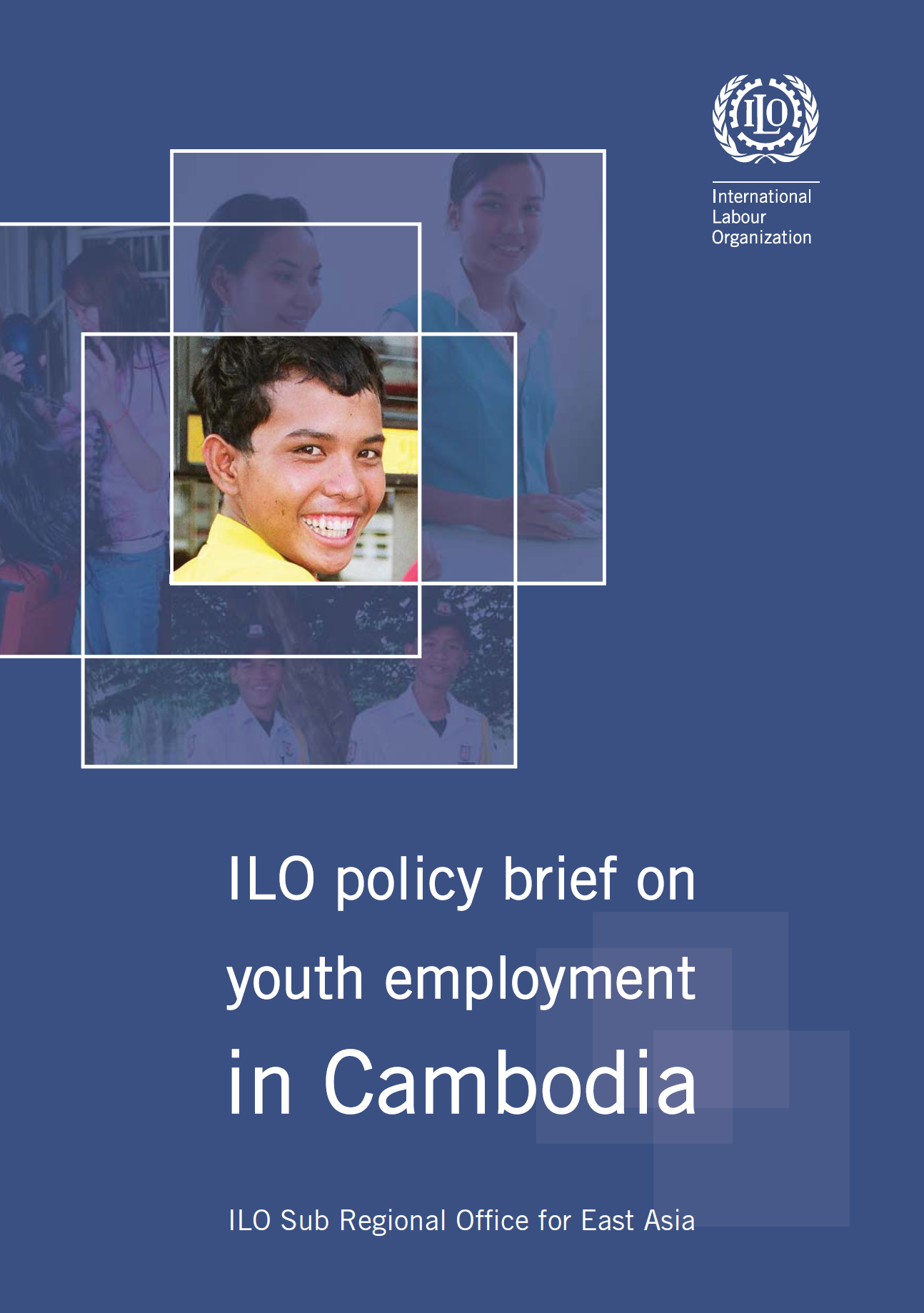
ILO Policy Brief on Youth Employment in Cambodia
Publication Year: 2007 / Sources: International Labor Organization (ILO)Cambodia has a young population with 39 per cent of the population in 2004 below 15 years of age, down from 43 per cent in 1998. By 2004 the dependency ratio showing the children and elderly as a percentage of the intermediate group was 74 per cent.1 Youth aged 15–24 represented 22 percent of the population that year. Large numbers of young people are entering
the labour force as a result of a baby boom in the 1980s. Measures must be taken to ensure that youth do not add to underemployment in the countryside or lead to higher rates of urban unemployment but instead contribute to growth and development through productive employment.
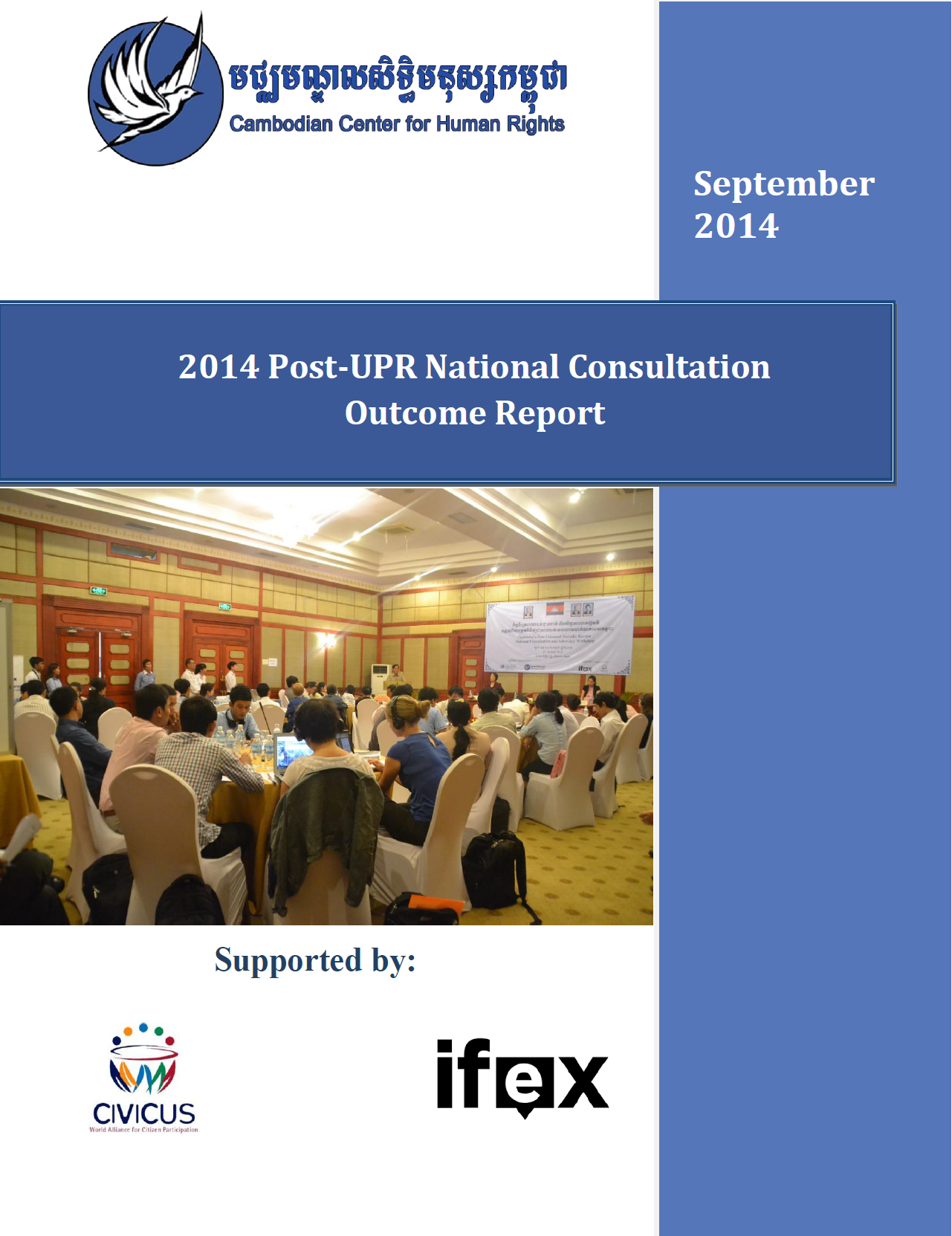
2014 Post-UPR National Consultation Outcome Report
Publication Year: 2014 / Sources: Cambodian Center for Human Rights (CCHR)This Outcome Report summarizes presentations, panel discussions and small group discussions undertaken during the 2014 Post-Universal Periodic Review National Consultation organized by CCHR and the Office of the United Nations High Commissioner for Human Rights (“OHCHR”) in Cambodia.
Download: English | Khmer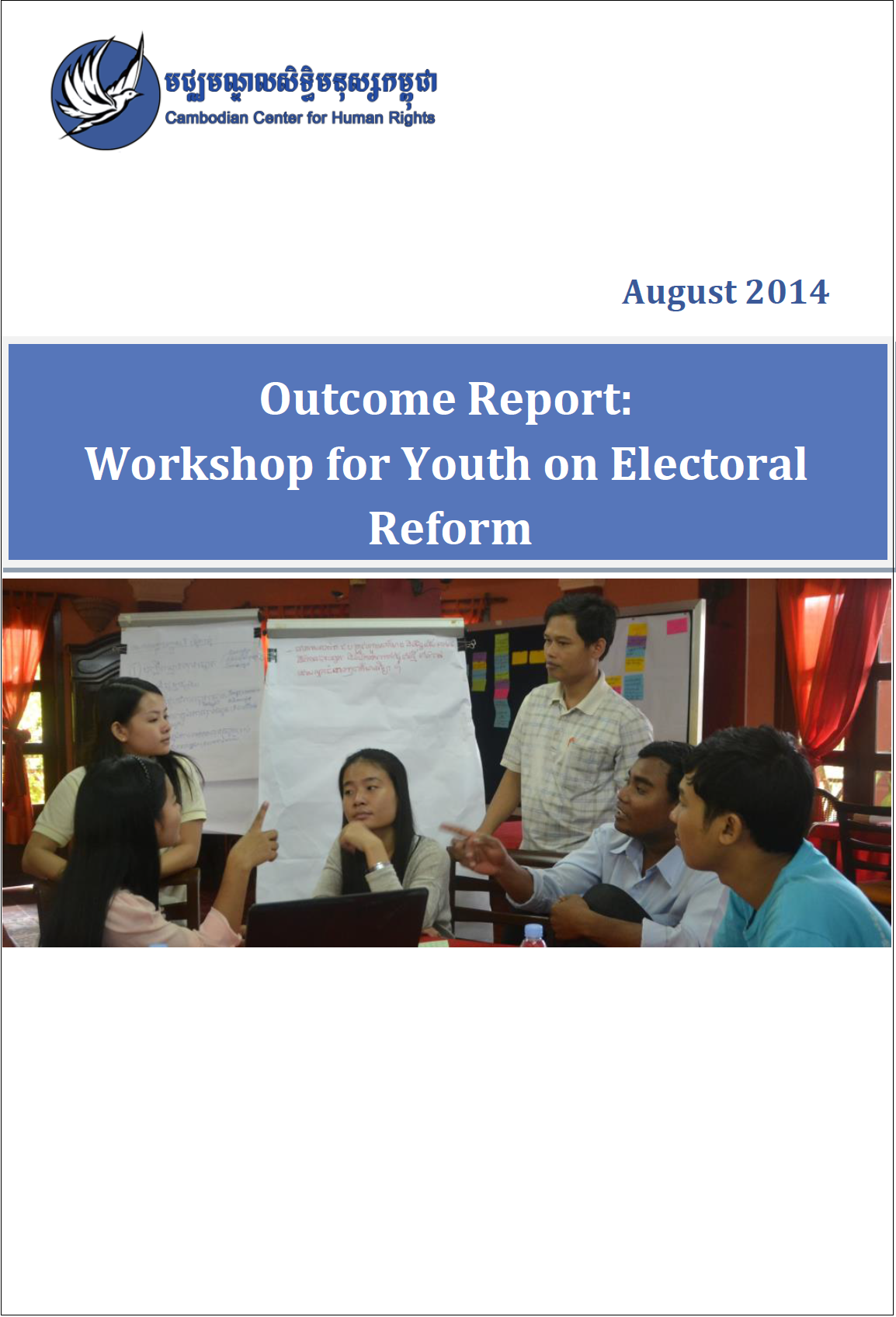
Outcome Report: Workshop for Youth on Electoral Reform
Publication Year: 2014 / Sources: Cambodian Center for Human Rights (CCHR)This report summarizes the issues raised and recommendations of participants during the Workshop for Youth on Electoral Reform. The objectives of this event was to provide opportunities for youth participants to identify key concerns regarding electoral reform and to develop recommendations, in addition to learning about substantive issues regarding to political participation and electoral reform.
Download: English | Khmer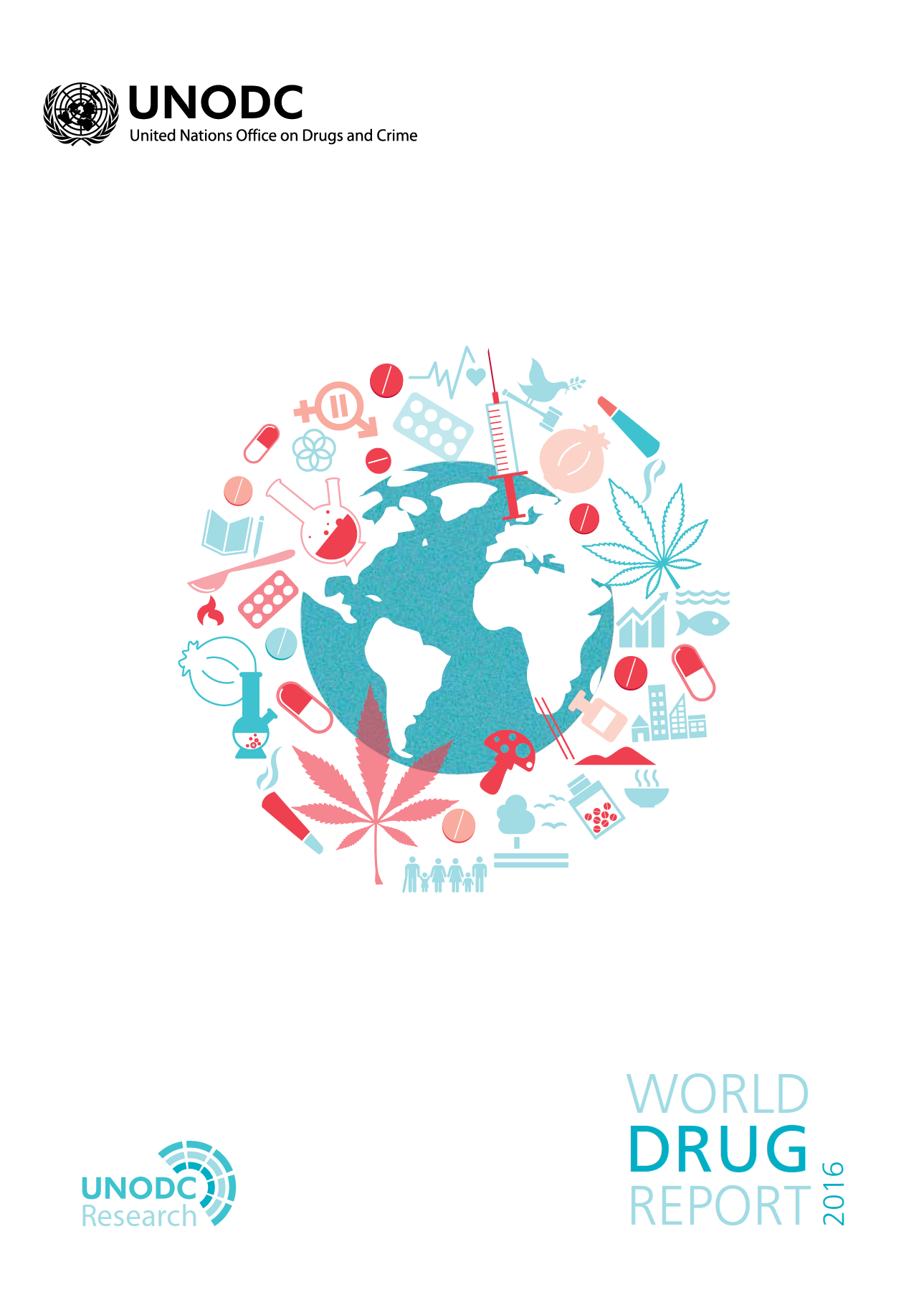
World Drug Report 2016
Publication Year: 2016 / Sources: UNODCThe World Drug Report 2016, which provides a comprehensive overview of major developments in drug markets, trafficking routes and the health impact of drug use, supports comprehensive, balanced and integrated rights-based approaches. The text highlights the importance of drug abuse prevention and treatment; encourages the development, adoption and implementation of alternative or additional measures with regard to conviction or punishment; and promotes
proportionate national sentencing policies, practices and guidelines for drug-related offences.

2016 Natixis Global Retirement Index
Publication Year: 2016 / Sources: Natixis Global Asset Management and CoreData ResearchThe Global Retirement Index (GRI), Survey included 7,100 investors in 22 countries.
GRI is a multi-dimensional index developed by Natixis Global Asset Management and CoreData Research to examine the factors that drive retirement security and to provide a comparison tool for best practices in retirement policy. The index incorporates 18 performance indicators, grouped into four thematic sub-indices, which have been calculated on the basis of reliable data from a range of international organizations and academic sources. It takes into account the particular characteristics of the older demographic retiree group in order to assess and compare the level of retirement security in different countries around the world.
Download: English | Khmer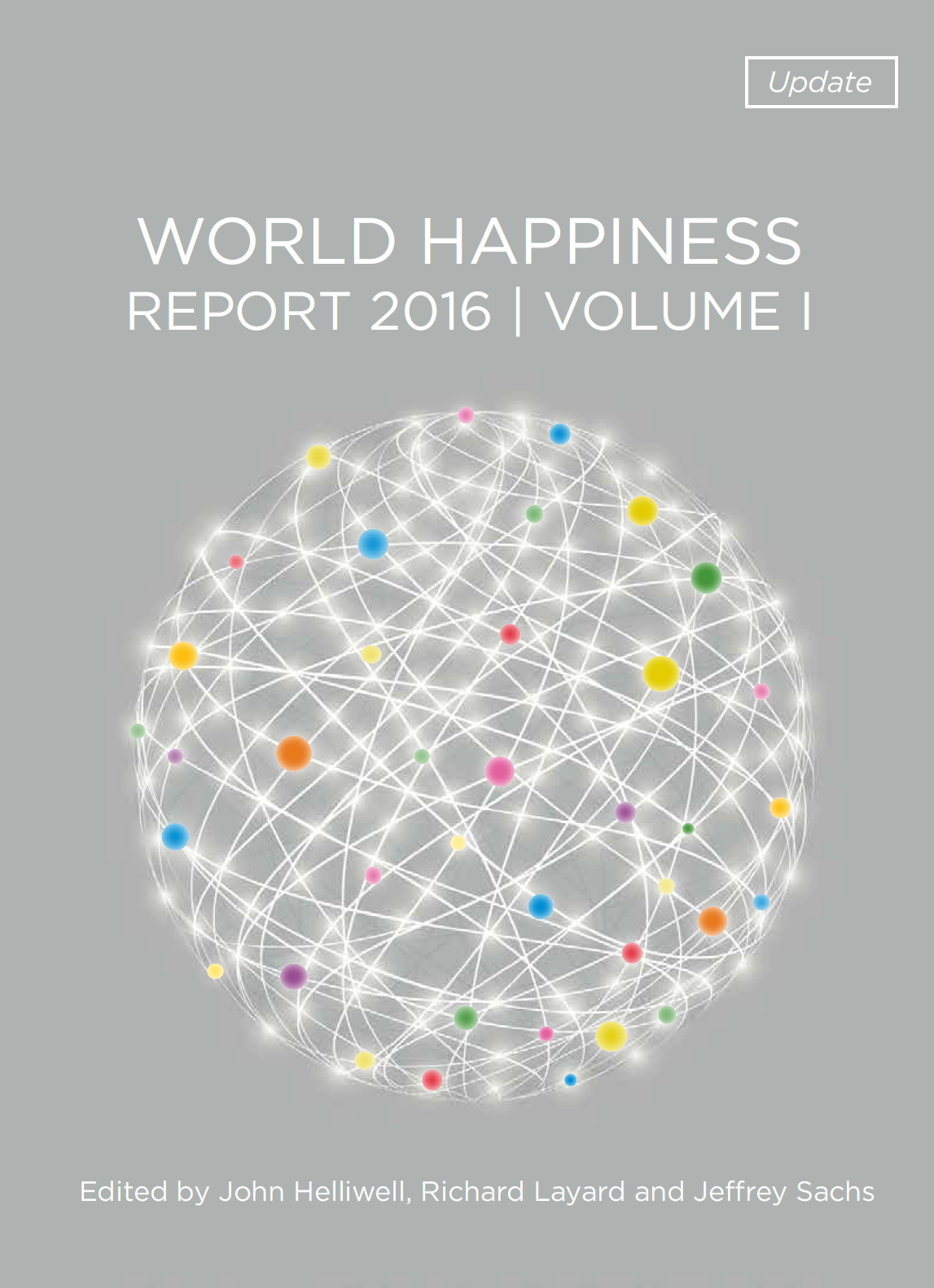
World Happiness Report 2016 Update (Vol. 1)
Publication Year: 2016 / Sources: A Group of Independent ExpertsIn this report we give new attention to the inequality of happiness across individuals. The distribution of world happiness is presented first by global and regional charts showing the distribution of answers, from roughly 3,000 respondents in each of more than 150 countries, to a question asking them to evaluate their current lives on a ladder where 0 represents the worst possible life and 10, the best possible.
Web-link: World Happiness Report
Download: English | Khmer